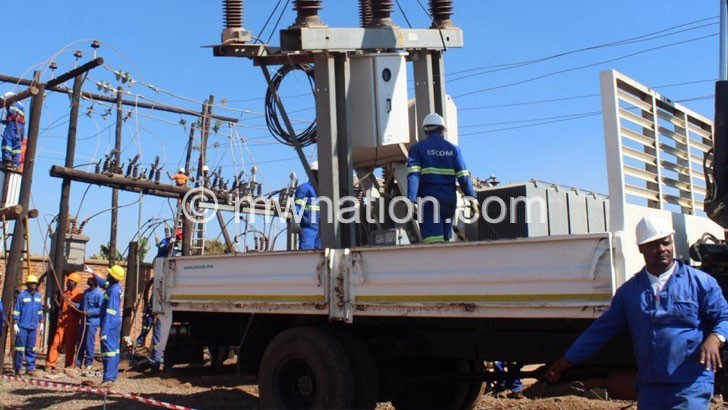Study doubts jump in Electricity penetration
Malawi would only reach around 20 percent electricity penetration in 2030 and fail to reach targets for serving the population, according to a new study.
The study on Malawi Sustainable Energy Investment conducted by Ministry of Natural Resources, Energy and Mining has found that combining grid strengthening with an increased pace of rural electrification could enable the country to reach the goal of nearly 30 percent on-grid energy access by 2030.
Malawi’s electricity penetration is at a paltry 10 percent, one of the lowest in the sub-Saharan Africa.

The study observes that meeting the country’s energy needs requires a step change compared to historic progress, which includes de-risking immediate projects as well as disseminating success to create positive feedback loops and scale investments.
The report recommends that capital be injected to meet funding needs across all major areas of Malawi’s energy system, both on-grid and off-grid; which includes $140 million for power generation, $500 million for distribution, $130 million off-grid lighting, $70 million demand-side management, $596 million cooking solutions, $10 million productive use for mini-grids and stand-alone systems as well as the $350 million for transmission.
“Investments to fill this gap will need to come from a range of private, public and concessional sources, complemented by government support,” reads the study in part.
Electricity Supply Corporation of Malawi (Escom) reports that it serves approximately 423 455 consumers, resulting in an electrification index of 10.3 percent.
With a population growth rate of 2.75 percent, the household population grows by approximately 113 000 each year. Using these growth rates, the projected population in 2030 is 26.58 million, or 5.9 million households.
Experts say energy is a means to an end as it provides a platform for social and economic development and a pathway for achieving many of the other Sustainable Development Goals (SDGs).
Malawi has committed to achieving sustainable energy for all as enshrined in SDGs) Number Seven with a Sustainable Energy for All (SEforAll) Action Agenda 2017 which intends to provide access to modern energy services for all by 2030 through on-and off-grid electrification and improved cook stove.
Speaking last week in Lilongwe during the launch of National Energy Policy, Minister of Natural Resources, Energy and Mining Bintony Kutsaira said t government is working to have up to 50 percent of the population connected to electricity by 2025.
The minister said the country is facing many challenges in the power sector, which requires policymakers to be dynamic.
“We have to ensure that the plans we are making should be in tandem with what our policy says,” said Kutsaira.





